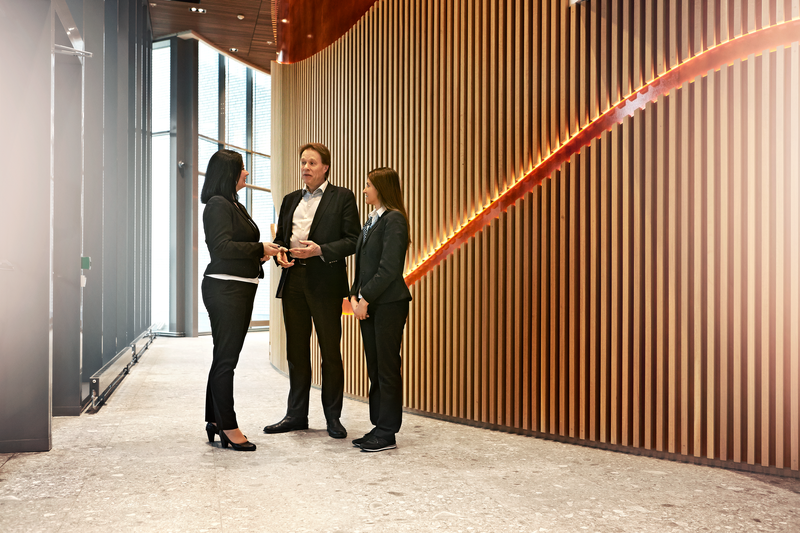When a company operates globally, with offices supporting colleagues around the world, a key challenge is ensuring workplace services are delivered equitably—no matter the location. For one global professional services firm, this disconnect was having an impact on employee experience—and their team reached out for ISS’s support in tackling the issue.
“In terms of facilities, the client already had the best price, but not necessarily the product they wanted for their employees,” says ISS’s Nordic Key Account Director, Henrik Møhl, “and they lacked communication between the four Nordic countries in which they operate—so this is where they looked to us for an answer.”
Disparities in service levels across Denmark, Finland, Norway and Sweden impacted the professional lives of employees who travelled to different offices, Henrik explains. When comparing the workplace offerings in one country versus another, some would feel dissatisfied—leading to a higher turnover rates. “Our goal was to unite the countries,” he says.
The scores that matter
To help address this challenge, the ISS team began measuring the client’s services across countries through a user satisfaction index, making changes to the service offerings to help align the scores.
“It’s not necessarily that the services are aligned in each country, but that the scores are,” explains Henrik. He uses cleaning as an example: “If service users are happy with cleaning in three countries, and one country is behind, you increase cleaning in that country to make sure that service users are equally satisfied.”
While there are clear differences between ISS’s offerings due to country-specific regulations, he tasked four local Key Account Managers to “think Nordic and act local”.
For instance, the team placed a greater emphasis on at-home screens and equipment for employees in Denmark, where people are more encouraged to work from home, than in Sweden, where a greater proportion work in-office. “That’s how we can adjust our services based on local needs,” says Henrik.
With catering, meanwhile, the focus was on ensuring the food quality suited each office. “I talk a lot about food,” he laughs. “But it is very important, especially here in Denmark!”
“The key words were quality in the raw materials, and pride from the staff in what they serve,” adds Henrik. “We asked our teams, ‘What does clean mean to you? Would you sit at this desk? Would you eat this yourself?’”


